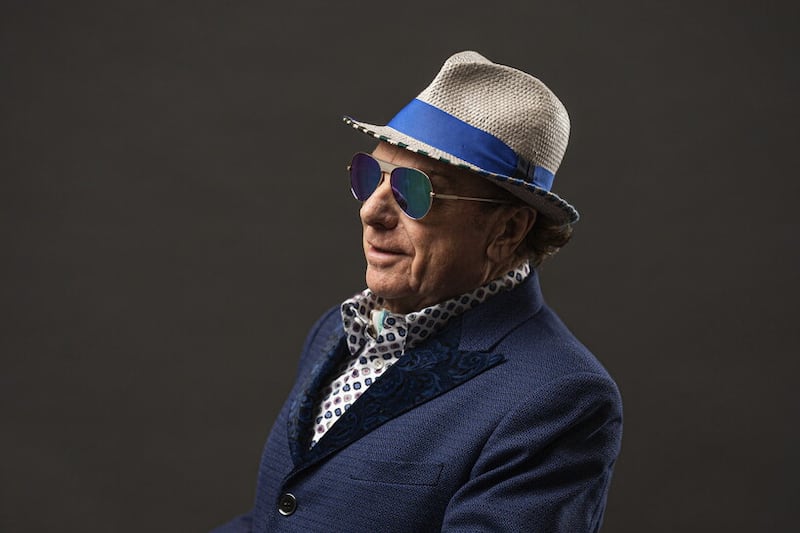It is always a dilemma when you consider ending a relationship with a person you have revered for decades, even when the other party is entirely unaware of your existence. When the individual in question is Van Morrison, who is entitled to be regarded as a genius and in my estimation up there with the late Phil Lynott as the most influential Irish musical figure of the last 60 years, the process does not get any easier.
Morrison is famously not someone who courts affection, but I suspect that many of his long-standing followers have nonetheless been growing increasingly uncomfortable both before and after the settlement of his bizarre legal contest with the former Stormont health minister Robin Swann earlier this month.
I have been an admirer of Morrison since I came across since his outstanding 1974 live double album, It’s Too Late To Stop Now, while at school and starting to take a serious interest in music. Getting the opportunity to see him in action was a distant prospect, as he was then based in California and had not played in his native Belfast since the mid-1960s, so a recording of him in concert was then the next best thing.
- Remembering Nelson Mandela and an unlikely Irish friendship – Noel DoranOpens in new window
- Throwing bricks through Muslims’ windows won’t solve our socio-economic issues - Noel DoranOpens in new window
- Unionist pessimism and the dawning realisation that the union could be lost - Noel DoranOpens in new window
It’s Too Late To Stop Now is still regularly cited as among the best live LPs of all time, and when Morrison subsequently appeared in The Last Waltz, Martin Scorsese’s critically acclaimed 1978 film capturing the final set by The Band in San Francisco, it was an even more compelling performance. The second of Morrison’s two contributions was Caravan, which is available on YouTube and to this day has to be seen to be believed, even if his high kicking exploits were more in the style of a former east Belfast window cleaner than a West Coast superstar.
I was hooked, and determined to attend his 1980 open air gig at Balmoral Showgrounds in Belfast, which was held during a period of high tension in the city. Unfortunately, when many fans took the opportunity provided by a rare day out to carry in apparently unrestricted amounts of alcohol, and bottles and cans began to fly through the air, Morrison was understandably unimpressed and called a premature halt to the proceedings.
The second of Morrison’s two contributions was Caravan, which to this day has to be seen to be believed, even if his high kicking exploits were more in the style of a former east Belfast window cleaner than a West Coast superstar
It might explain why Morrison, who had previously spoken about his periods of stage fright, has frequently been reticent to engage with his audiences, and there was a danger that another period of withdrawal could have followed. Fortunately, he eased his way back through indoor shows, and I was able to regularly appreciate his brilliance at Belfast venues like the Ulster Hall, the Grand Opera House, the SSE Arena, and the Lyric Theatre, with a particular privilege arriving in 2015 through the concert on Cyprus Avenue, the setting for the classic song of the same name, marking his 70th birthday.
Morrison, as is his right, has always been keen on preserving his privacy, to put it mildly, and for most of his career managed to avoid expressing any political views, although he authorised and was paid for the use of Days Like This in publicly funded television advertisements before the Good Friday Agreement.
His strident opposition to government policies during the height of the Covid crisis caused considerable surprise, and, when he took matters to another level and launched an outspoken attack on the inoffensive Swann at a Belfast hotel in 2021, the video footage which later emerged could only be described as toe-curling.
While it is positive that Morrison has plainly maintained a friendship with Ian Paisley junior, as one of Cyprus Avenue’s most celebrated former residents, their joint appearance at the Europa microphone that day will not exactly go down as their finest hour. The subsequent legal entanglement between the singer and the former minister was resolved by a statement agreed by their lawyers, but I am still finding it difficult to listen to Morrison’s wonderful archive.
My resolve weakened the other day when a stroll along the shores of Belfast Lough took me past a mural paying tribute to Morrison which I had not previously noticed. In an unlikely but not inappropriate underpass location close to Holywood railway station, it quotes his evocative lyrics from Into The Mystic, encouraging us to “smell the sea and feel the sky, let your soul and spirit fly”.
It prompted me to return after a prolonged break to the still mesmerising LP where I first heard the track, It’s Too Late To Stop Now. I’m not sure if I can fully obey that particular instruction from Morrison, in the closing line of Into The Mystic, but I might allow myself some further dalliances. I’m pretty sure that Van The Man won’t mind either way.









